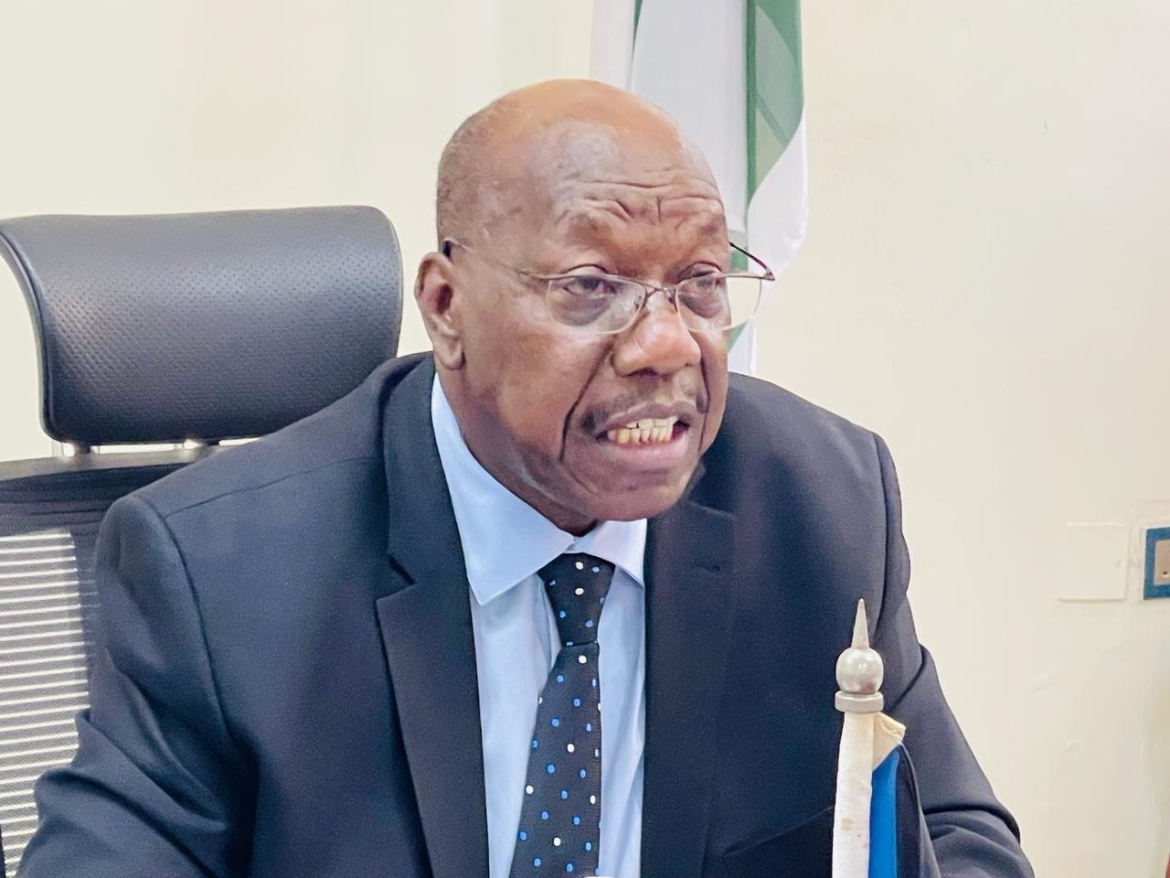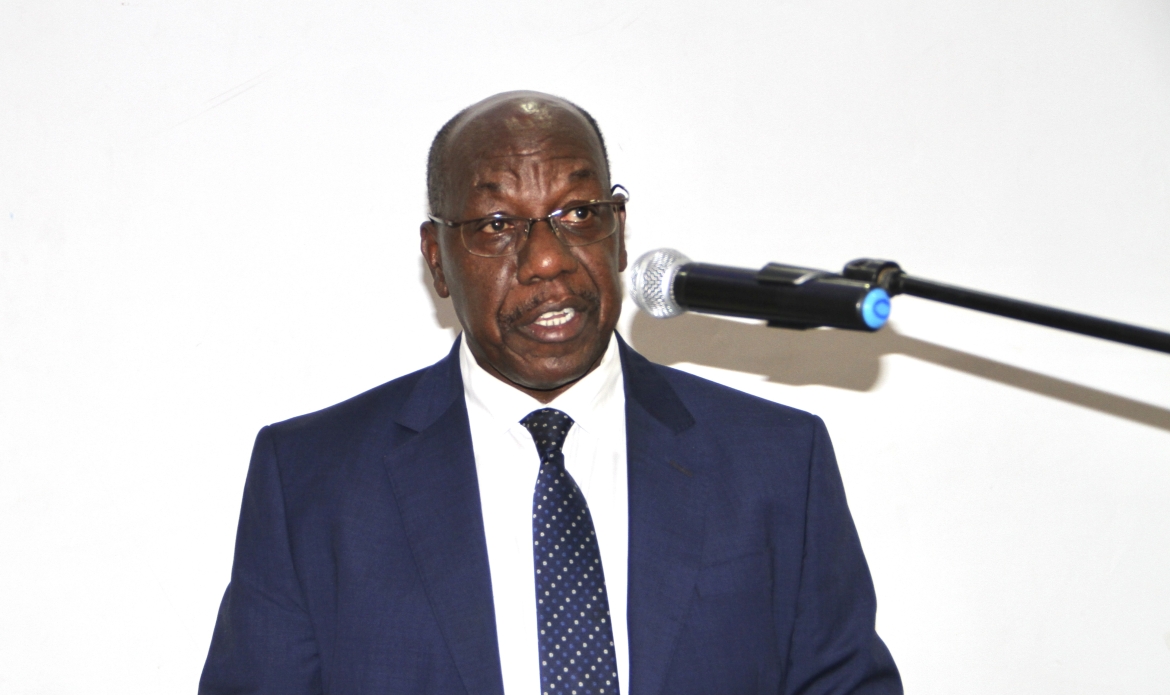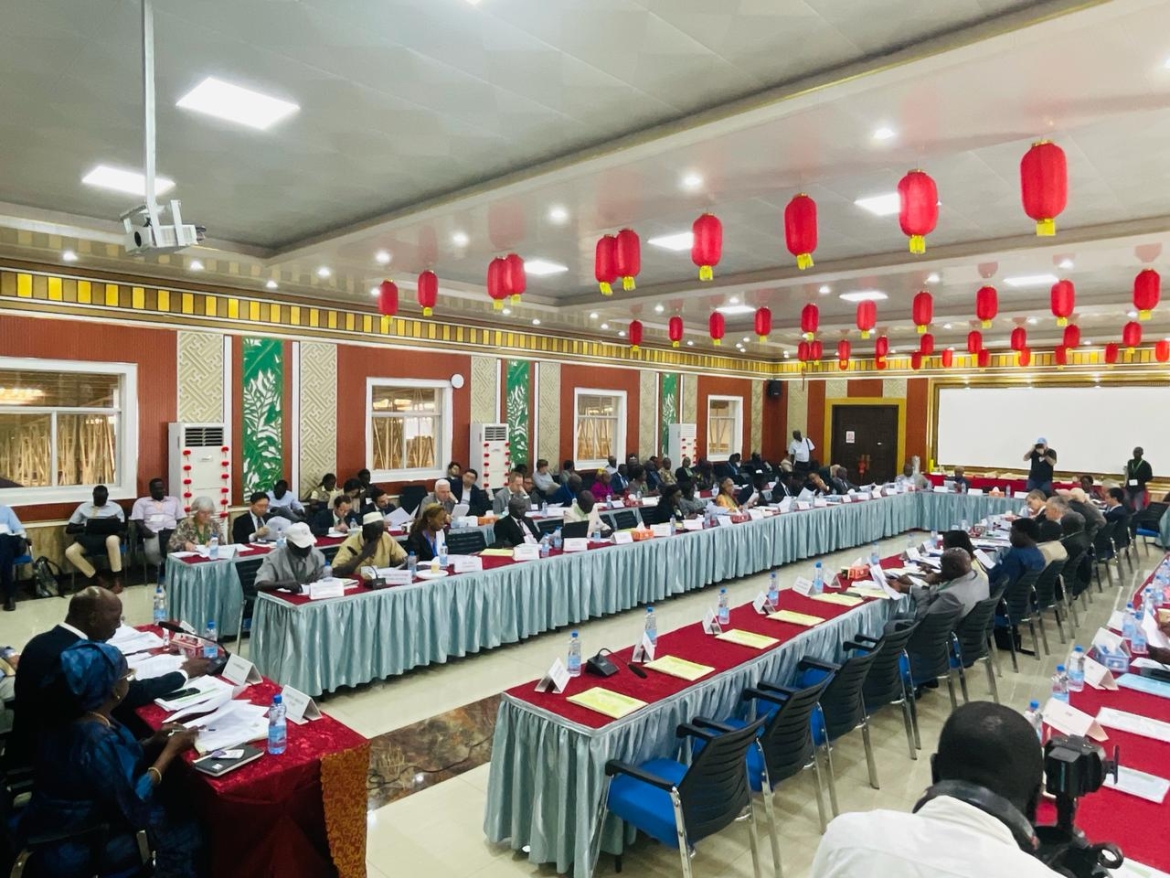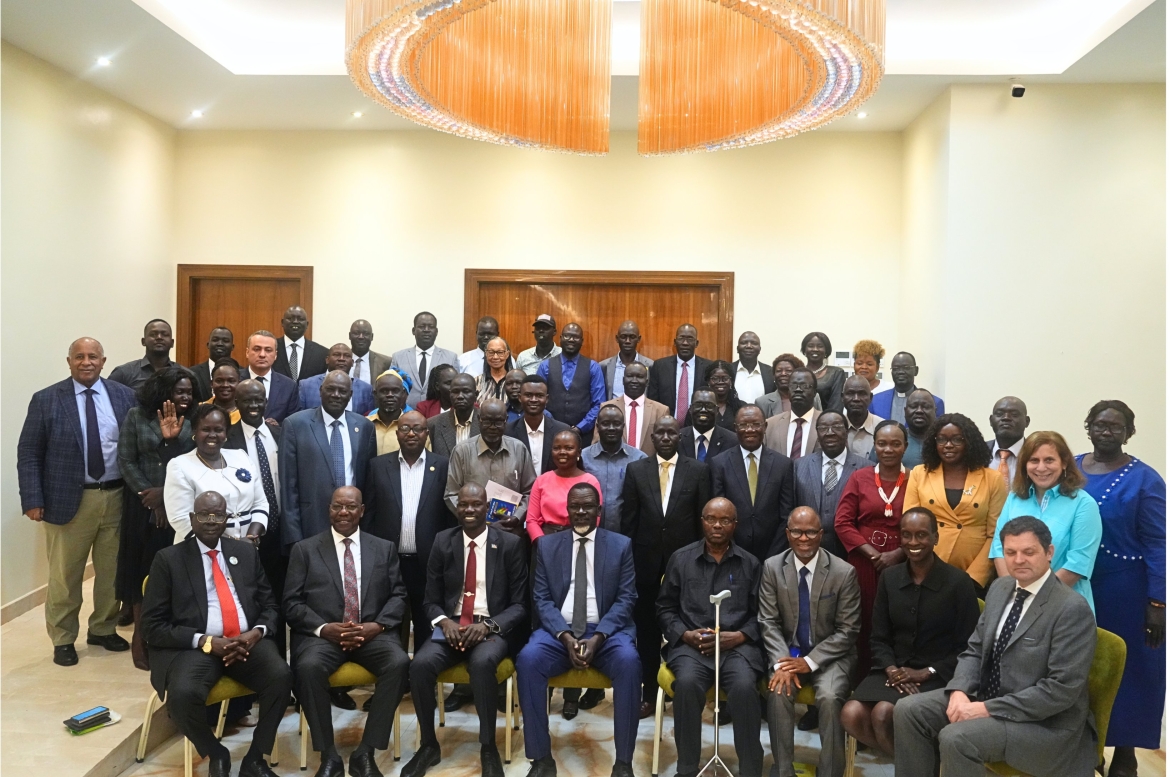TWO YEARS ON: A LOT AT STAKE FOR THE R-ARCSS
The writer is Major General Charles Tai Gituai, the Interim Chair of the Reconstituted Joint Monitoring and Evaluation Commission.
I would like to start by offering my congratulations to the Revitalised Transitional Government of National Unity (RTGoNU) and the people of South Sudan for Saturday 12 September, the two-year anniversary of the signing of the Revitalised Agreement on the Resolution of the Conflict in the Republic of South Sudan (R-ARCSS).
Reaching two years since signing the Peace Agreement is a significant achievement. The leadership shown by the President of South Sudan, H.E. Salva Kiir Mayardit, has provided a welcome environment in which progress has been made.
Furthermore, the collective efforts of everyone involved – from Parties to the Agreement, Stakeholders to the Agreement, to every South Sudanese citizen – to draw a line under the conflicts of the past, turn the page and move on, down the path to sustainable peace and prosperity is commendable and a remarkable milestone.
As we celebrate the two-year anniversary, we are afforded the opportunity to reflect on how we reached this point, what really are the achievements, and how this must then instruct us on how to move forward.
It is evident that implementation of the Revitalised Peace Agreement has been slow, and challenging. The COVID-19 pandemic only adds to the difficulties. While the path to peace has never been easy anywhere in the world, we must redouble our efforts as the Agreement moves into its third year of implementation.
One of the most significant achievement is that there is now a Presidency composed from different Parties to the Agreement, as stipulated by the agreement. The formation of RTGoNU likewise is a welcome move, however, it is important to note that the government composes the three arms namely, the Executive, the Legislature and the Judiciary. Therefore, the executive now needs to catalyse and drive the pace of the implementation and reconstitution of the other two arms of government and should take full advantage to push for the implementation of the remaining areas of the agreement.
Carried forward from the Pre-Transitional period, the unification of forces remains conspicuously uncompleted. When I visited Mapel training centre in Western Bahr el Ghazal recently, I saw for myself a highly motivated and cohesive gathering of troops who are very enthusiastic to be part of a Unified Force. Unfortunately, the conditions in which these men and women were gathered are austere, and the locations are poorly supplied. For the force to stand out as a successful Unified Force, it must be capable, acceptable, adaptable, able and appropriately socialized. This can be achieved by professional and character development training. Logistic support that is deliberately planned and executed is critical to the success of this training and unification. More must be done in a coordinated way across the security mechanisms, driven by the Joint Defence Board. The Necessary Unified Force will underpin the security of South Sudan and its people, in exactly the same way that it does in other parts of Africa and the world.
That said, the loss of life through community-based violence is concerning. Though the Permanent Ceasefire between the Parties to the Agreement is generally holding, we must acknowledge that people being killed in any context in the country is unacceptable. The youth of South Sudan deserve much better than this and they are looking upon their leaders to provide appropriate guidance that will safeguard their future.
Similarly, in terms of governance, more is needed. Let’s remember the spirit of collegiality and compromise which led to the commendable agreement on the number of States in February this year, which then permitted the formation of the RTGoNU. This spirit of compromise, sacrifice and concession which the President showed in February is needed now from all Parties to finalise the appointment of the governor of Upper Nile state, and to conclude the responsibility- sharing across all levels of government.
With a Cabinet sworn in March 2020, there cannot be any good reason for it not to meet more regularly and conduct the usual business of government to take full advantage of the progress made so far. Cabinet level meetings and collective government deliberations on policy and strategy assures the people that the Agreement is holding and provides confidence and trust among the leaders. The norms and standard practices of government are what South Sudan needs right now. At all times, we must also remember the gender dimensions to the Agreement, which when implemented, will create a stronger and more cohesive government and country where women and youth have played a fundamental role in the peace process.
As South Sudan proceeds down the path of implementation of this Agreement there will be challenges that will require compromise, coordination and collegiality. Therefore, we should all be ready to give and take for the sake of enduring peace and prosperity in this country. Issues of funding can be managed with transparency and prioritisation in the spirit of patriotism and loyalty to country. Issues of trust and lack of confidence can be managed with commitment and dialogue. No questions about political will should be given cause to arise, two years after the Agreement was signed.
Surely our reflections as we mark this two year anniversary must lead us to this conclusion: the current opportunity for growth and development that the R-ARCSS provides must not be allowed to slip, and progress made so far must not be allowed to flounder. We should celebrate the two-year anniversary, but remember that so much work awaits us and we need to redouble our efforts. It has been done elsewhere, it can be done in South Sudan. We must not lose this opportunity, as we have come from far. We should say ‘backward never, forward ever!’ God Bless the people of South Sudan as it proceeds on the path to sustainable peace and prosperity.





